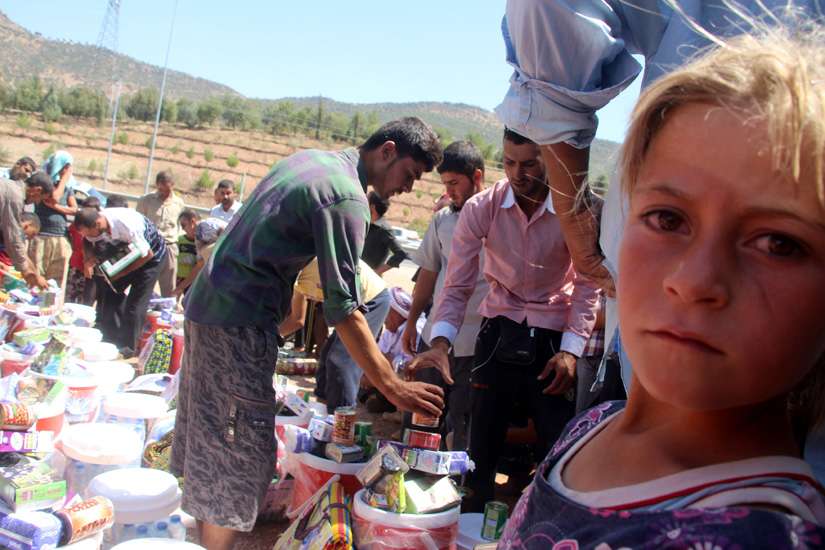Development and Peace has partnered with Caritas Iraq and the American agency Catholic Relief Services to renovate abandoned houses in the Dohuk Governorate of Iraq’s Kurdish territory. In addition to putting windows and doors on the existing houses, the shelter program sponsored by Development and Peace locates the legal owners and arranges long-term leases so that refugees will have secure tenure in their temporary homes.
Depending on the size of the house, three or four families are rehoused in each renovated house.
The latest grant from the development side of the Department of Foreign Affairs, Development and Trade brings the total Canadian government contribution to the shelter project to $3.4 million. So far, Canada has committed $67.4 million in humanitarian assistance in Iraq since the beginning of 2014.
Home renovations and family relocations began in September, anticipating the cold and often snowy conditions of winters in the region.
“How can you imagine to live in a tent? It’s really, really hard,” Development and Peace emergency program director Guy Des Aulniers told The Catholic Register.
In addition to the housing project, Development and Peace is building playgrounds in the refugee camps where camp workers can organize children’s activities, informal schooling and some counselling to traumatized children. The project also helps with clean water and toilets in the camps.
Given that Development and Peace has been sponsoring projects and local organizations in Iraq since 1967, the emergency response to Iraq’s internal refugees is just an extension of the Canadian organization’s long-term commitment to the Iraqi people, said Des Aulniers.
The United Nations High Commission for Refugees counts 1.9 million internally displaced persons in Iraq.
“It’s a very difficult humanitarian situation and we have to respond to that,” Des Aulniers said.
So far, Development and Peace has only been able to involve itself in emergency relief. Planning for long-term recovery and rebuilding is not possible at this stage, said Des Aulniers.
“Our team is mixed, with Christians, Yazidis, Shiites, Sunnis — you name it. We want to show that living together is possible. This is, in a way, recovery,” he said.


